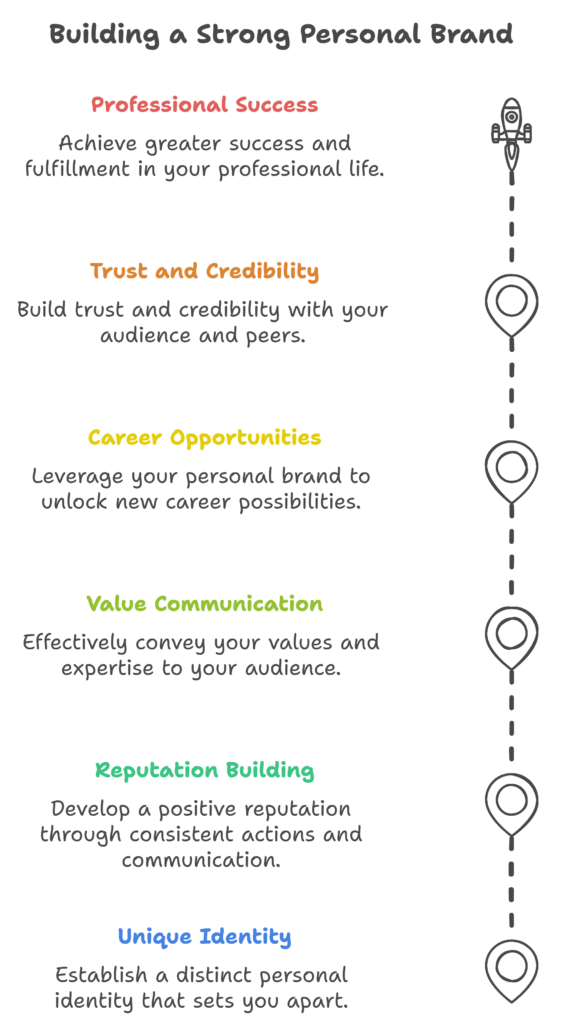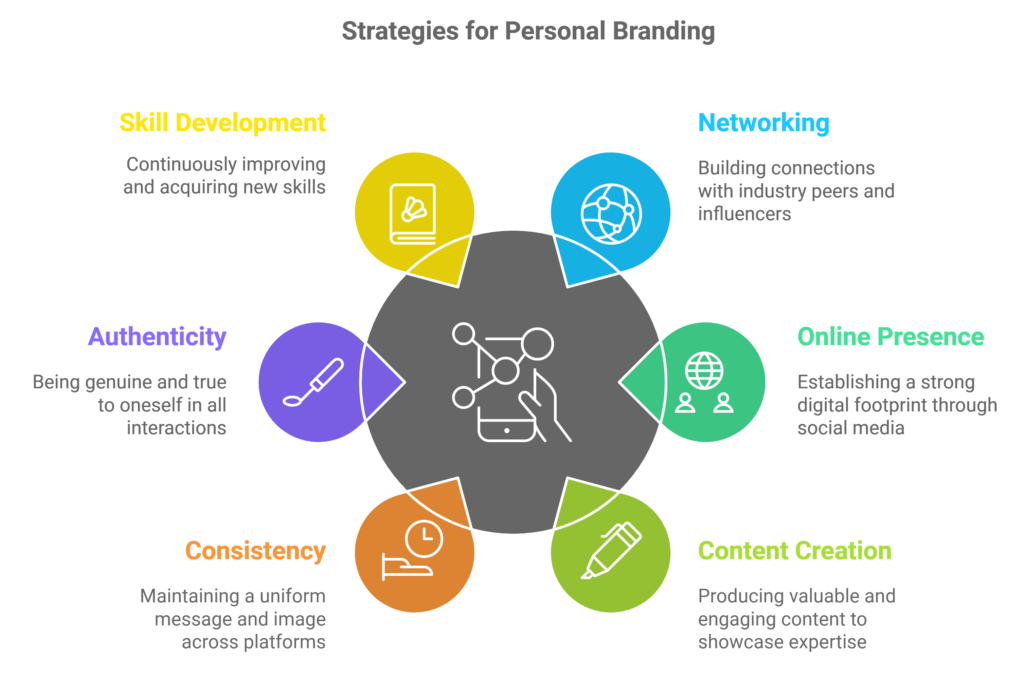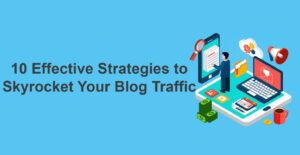In today’s digital age, building a strong personal brand is essential for anyone looking to advance their career, grow their business, or establish their presence online. Your personal brand is how you present yourself to the world, and it reflects your values, skills, and personality. A well-developed personal brand not only helps you stand out but also opens doors to new opportunities.
In this guide, we’ll dive into proven strategies to build your personal brand and help you create a powerful online identity that resonates with your target audience.


What is a Personal Brand?
Your personal brand is more than just a logo or a tagline; it’s the perception others have of you based on your online and offline presence. It encompasses your skills, experiences, values, and the unique qualities that set you apart from others. A strong personal brand communicates who you are, what you stand for, and why people should trust and connect with you.Why is Personal Branding Important?
In an increasingly competitive world, a well-crafted personal brand can:- Increase credibility and trust: Establish yourself as an authority in your field.
- Expand your network: Attract like-minded people and industry leaders.
- Open doors to new opportunities: Whether it’s a new job, clients, or partnerships, a personal brand can set you apart.

Proven Strategies to Build Your Personal Brand
1. Define Your Unique Value Proposition
To start building a strong personal brand, you need to identify what makes you unique. Think about your skills, experiences, passions, and the value you can provide to others. Ask yourself:- What skills or knowledge do I have that can help others?
- What are my core values and beliefs?
- How do I want people to perceive me?
2. Identify Your Target Audience
Knowing who you want to reach is essential for effective personal branding. Your content, tone, and messaging should resonate with the people you want to connect with. Consider the following:- Demographics: Age, gender, profession, and interests.
- Pain points: What challenges do they face that you can help solve?
- Platforms: Where do they spend their time online (LinkedIn, Instagram, Twitter, etc.)?
3. Build an Online Presence
Your online presence is the backbone of your personal brand. Here’s how to establish a strong online identity:- Create a professional website or blog: A website serves as a digital portfolio where people can learn more about you and your work. Include sections like an “About Me” page, portfolio, and contact information.
- Optimize your social media profiles: Make sure your profiles on LinkedIn, Twitter, Instagram, and other platforms reflect your personal brand. Use a professional profile photo, consistent usernames, and a compelling bio.
- Publish valuable content: Share blog posts, articles, videos, or graphics that demonstrate your expertise and provide value to your audience.
4. Leverage Content Creation
Creating and sharing valuable content is one of the best ways to showcase your expertise and build a personal brand. Here are some content types to consider:- Blog Posts and Articles: Write about topics related to your field, offering insights and solutions to your audience’s pain points. For example, if you’re a digital marketer, write about SEO best practices or social media strategies.
- Videos and Webinars: Use video content to connect with your audience on a personal level. Host webinars to educate and engage with them in real-time.
- Infographics and Visuals: Share easy-to-understand graphics that highlight your key messages.
5. Network and Engage with Others
Networking is key to building a strong personal brand. By engaging with others, you can grow your visibility and reputation. Here’s how:- Connect with industry leaders: Reach out to professionals in your field and engage with them on social media or LinkedIn.
- Attend events and conferences: Participating in industry events can help you meet people, learn from others, and share your own insights.
- Collaborate with others: Look for opportunities to collaborate on projects, write guest blog posts, or participate in interviews.
6. Establish Yourself as an Expert
Positioning yourself as an authority in your field is critical for building trust and credibility. Here are some ways to do this:- Offer to speak at events: Speaking engagements are a great way to showcase your knowledge and reach new audiences.
- Publish thought leadership content: Write in-depth articles on industry trends, challenges, and solutions.
- Answer questions in online forums: Participate in forums like Quora or Reddit to answer questions and offer insights.
7. Be Consistent in Your Message and Tone
Consistency is essential for personal branding. Your tone, style, and messaging should be uniform across all platforms. This helps people recognize and remember your brand. Here’s how to stay consistent:- Choose a brand voice: Decide if your tone will be professional, friendly, humorous, or inspirational.
- Use similar visuals: Maintain a consistent color scheme, font, and style in your graphics and photos.
- Stick to a content schedule: Regularly update your website, blog, and social media with fresh content.
8. Monitor and Manage Your Online Reputation
Your online reputation is a significant part of your personal brand. Regularly monitor what others say about you online and take steps to manage it effectively:- Set up Google Alerts: Receive notifications whenever your name is mentioned online.
- Respond to comments: Engage with people who comment on your posts or tag you on social media.
- Address negative feedback professionally: If you receive criticism, handle it with grace and seek to resolve issues constructively.
9. Leverage SEO for Personal Branding
SEO is not only for websites; it’s also a valuable tool for personal branding. By optimizing your content, you can reach a wider audience. Here are some SEO best practices for personal branding:- Use keywords in your bio and descriptions: Include keywords like “personal branding expert” or “digital marketing consultant” to help search engines understand your expertise.
- Optimize your content for search engines: When publishing articles, use keywords in titles, headings, and meta descriptions.
- Include internal and external links: Link to other relevant posts on your website, and add links to reputable external sources.
10. Evaluate and Adjust Your Brand Strategy
Personal branding is an ongoing process. Regularly evaluate your efforts and adjust as needed:- Track your social media metrics: Look at engagement, follower growth, and post reach to see what’s working.
- Ask for feedback: Reach out to your network for constructive feedback on your brand.
- Stay updated on industry trends: Your brand should evolve with the industry, so stay current with new trends and adjust your strategy accordingly.






